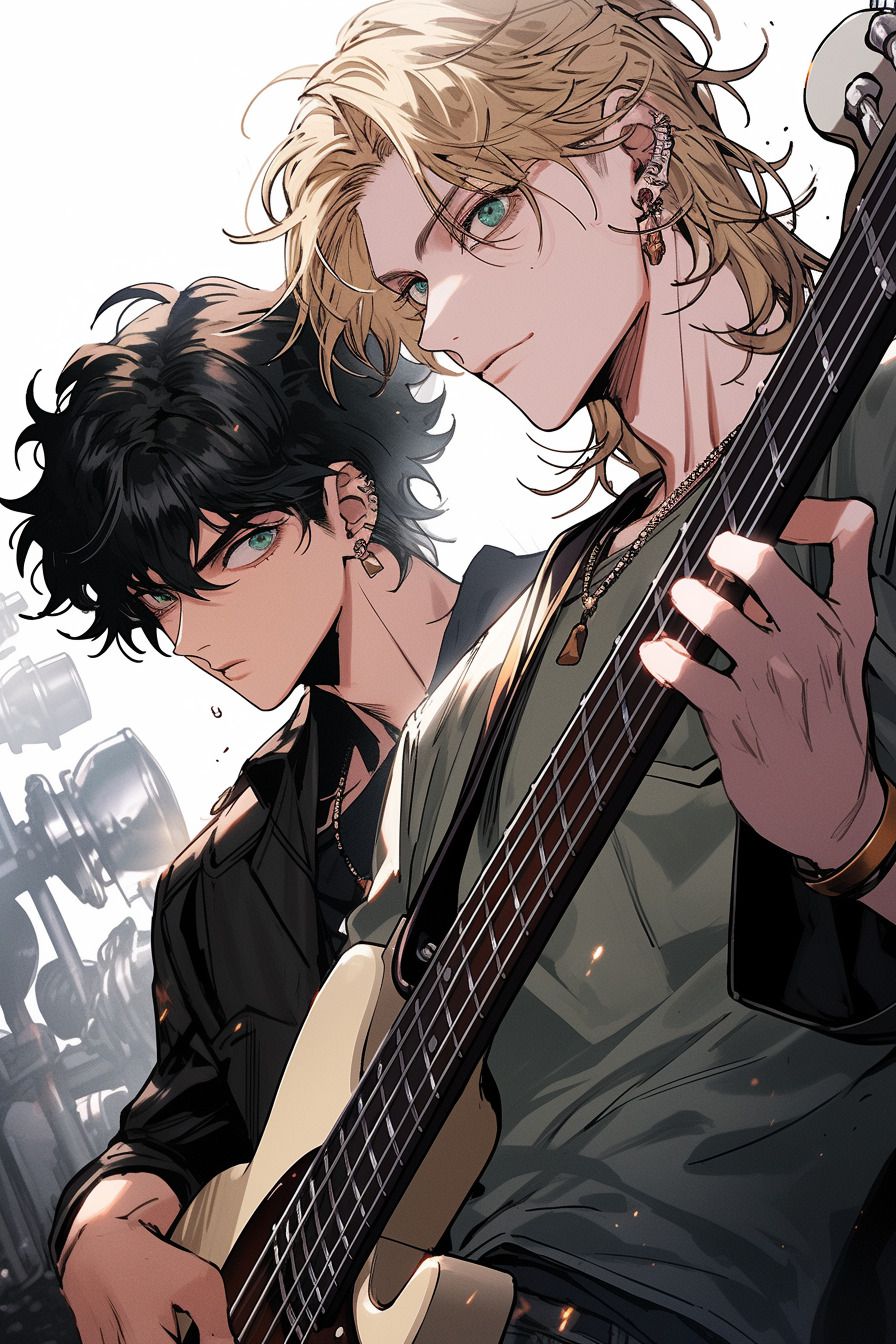Chapter 14
The hat slipped past Henry Clark's hand clutching his collar and fell to the ground.
His eyes were rimmed with red, and his tone turned fierce. “Don’t fucking act like you know everything.”
In the darkness, their noses were almost touching, their breaths colliding in chaotic bursts.
“I don’t understand, that’s why I came to you.”
Edith Parker said softly, “I’ve been looking for you for a long time.”
Those words were like a spell.
Suddenly, lightning flashed outside the window. The room was split open by a moment of daylight. The light pierced everything, illuminating Edith Parker’s rain-soaked body in stark white, and making those eyes shine bright.
A pair of eyes staring intently, like a predator watching its prey.
Henry Clark’s gaze suddenly changed.
Edith Parker didn’t understand.
For some reason, those furious hands suddenly lost their strength. In that instant, all of Henry Clark’s anger, pain, and struggle seemed to vanish, the sharp emotions in his eyes swallowed by a flood, turning into a kind of shock that Edith Parker couldn’t read.
He didn’t know what had happened, so he just stared at him with full attention, for once meeting his eyes directly.
The light in Henry Clark’s eyes flickered rapidly, his pupils reflecting the phantoms he had chased.
After the thunder, he suddenly let out a self-mocking laugh, his eyes burning red.
I’m the one who… has been looking for you for a long time, haven’t I.
Another bolt of white lightning tore through the last of his hesitation.
In that moment, the blood Henry Clark thought had frozen in his veins was nearly boiling. His disobedient brain conjured up hallucinations again. The roaring cheers and screams of a music festival, the overwhelming heat, the buzz of electric guitars, all rushed into his mind like the sea at Aranya, wild and unstoppable.
He was back at the peak of his life, full of youthful pride. Countless people loved him, yet on stage, he was captured by a single pair of eyes.
These very eyes.
Through them, Henry Clark clearly saw the proud self he had abandoned and forgotten.
There was no escape anymore.
Chapter 5: Bullseye
Rain battered the window glass like a rampage, yet inside the room, an almost eerie calm persisted.
Edith Parker didn’t know why; he only knew that Henry Clark was still staring at him, with full attention, deeply, as if trying to see through to his very bones. It was starting to make him uncomfortable.
He hated being stared at in the eyes.
Because of his unusual light-colored irises, Edith Parker had always drawn attention since childhood, but this trait was actually a sign of poor health.
At age five, when his vision was first found to be blurry, his parents took him to the doctor, and he kept going for years, but they could only relieve the symptoms—there was no good treatment.
Maybe because he was born into a very happy family, as a child he didn’t care much, and gradually accepted people’s curiosity. He just liked to keep his bangs long, wore glasses in class, and got used to not looking people in the eye when talking.
Until he was seven, in second grade—a perfectly ordinary day. His grandmother came to pick him up from school and took him for a follow-up appointment. By the time they got the test results, it was already late, and they didn’t go straight home.
His grandmother doted on him, knew he wanted sweets after seeing the doctor, so she held his hand and bought him all kinds: cake, cream-filled bread, and pudding topped with sparkling jam.
But Edith Parker never got to taste any of it. In the end, it all soaked in a pool of blood.
For several minutes after the car accident, he too was submerged in a sickly-sweet daze, until the first passerby appeared.
As a child, he didn’t understand what had gone wrong. He and his grandmother had been walking on the crosswalk, just as he’d been taught since he was little. Second by second, he counted down the red light, and when it turned green, he happily raised his hand, still held in hers.
“Grandma, we can cross now!”
In an instant, everything changed. The screech of impact, the nightmarish scene, the fleeing car.
He stood there, blood splattered across his face, some even in his eyes—stinging, burning, everything a blur, as if covered by a sheet of white plastic, unable to breathe.
Only when someone on the roadside screamed did the film break, and all the pent-up shock, pain, and helplessness poured out. The little boy collapsed to his knees, frantically covering his grandmother’s mouth, trying to stop the blood from gushing out.
His grandmother couldn’t speak, but with her last strength, she reached up and touched the tears in Edith Parker’s eyes.
The bloodstain left by those rough fingertips seemed to have never faded to this day.
If not for these eyes, would none of this have happened?
For a young child, witnessing the loss of a loved one firsthand is an unbearable trauma. From then on, Edith Parker stopped speaking, couldn’t attend school, and could only rest at home.
His parents gave him all the care and love they could, but it was no use.
Because of his muteness and post-traumatic stress, the young Edith Parker couldn’t defend himself, and the other party’s defense lawyer easily muddied the waters, claiming that testimony from a child with PTSD was invalid and distorted, successfully turning the case around.
And the person sitting in the defendant’s seat was just a scapegoat driver, not the real culprit. The young Edith Parker pointed at the scapegoat and cried his heart out, but couldn’t utter a single word.
